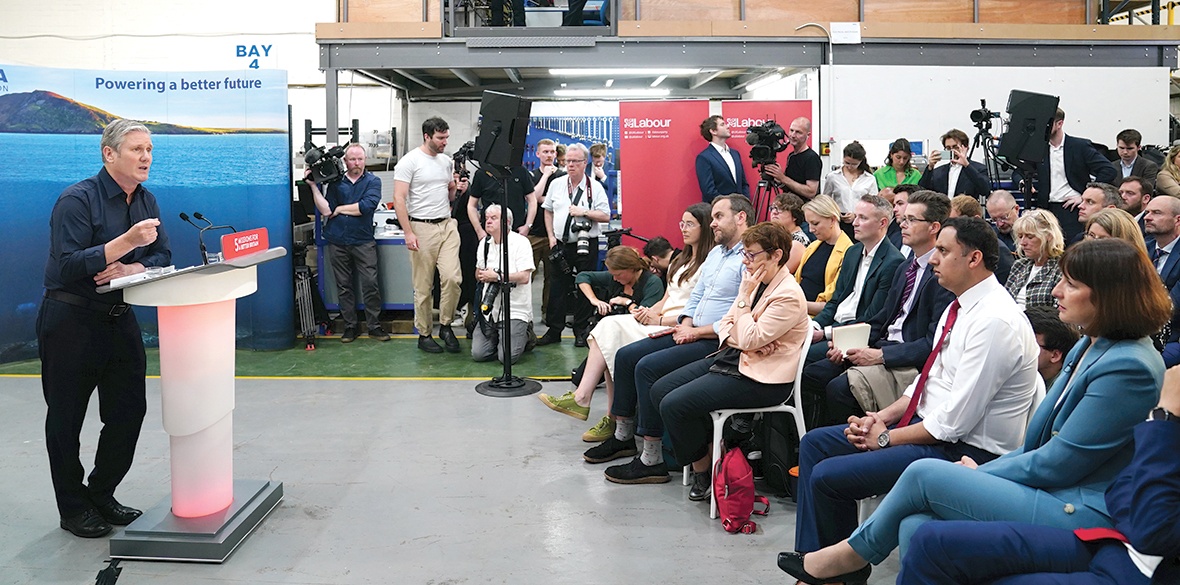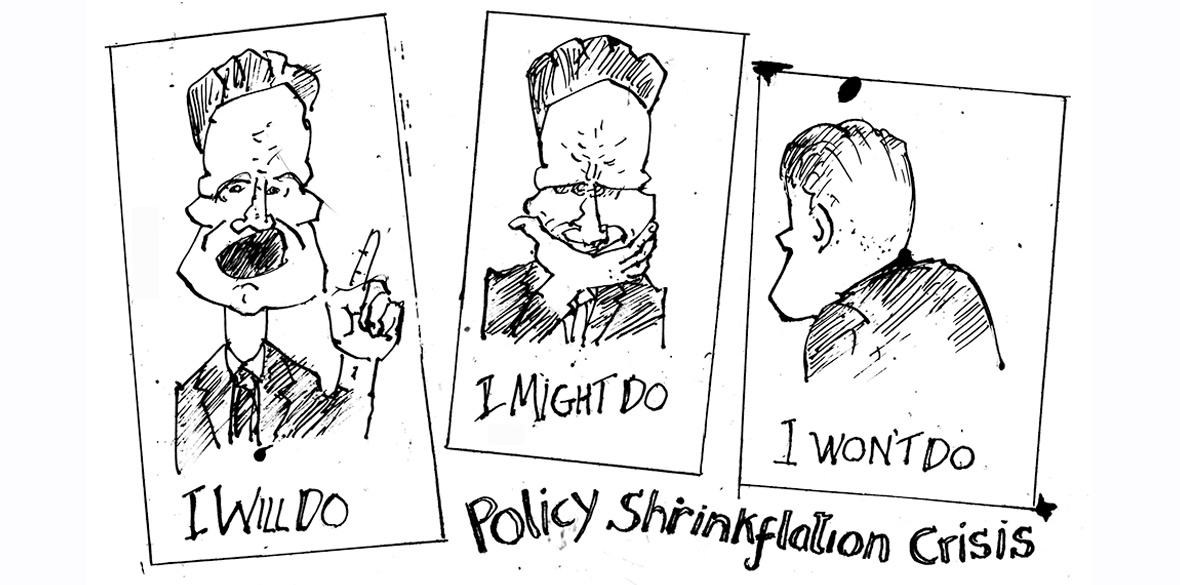This is the last article you can read this month
You can read more article this month
You can read more articles this month
Sorry your limit is up for this month
Reset on:
Please help support the Morning Star by subscribing here
POLITICIANS are allowed to change their minds, especially when facts change. They are also allowed to change policies, otherwise every manifesto would be the same as the last one.
But what the voters do not accept is being hoodwinked. And they thoroughly reject policies that will make them worse off. In the decision to drop the Labour Party’s £28 billion green investment plan, Keir Starmer is guilty of both.
The decision to cut the investment programme (the Financial Times says that it has been cut to £4.7bn a year) is shocking but not surprising.
There has been both speculation, and a series of mixed public messages from members of the Labour shadow cabinet that it would be delayed, watered down, include projected private finance or reduced, for months now.
It has also been clear for some time that the overall policy stance is to stick as closely to the Tories as possible. This was true on everything from parroting the disastrous Covid policy, to support for every war, to acquiescing in every attack on civil liberties.
Many in the Labour leadership clearly feel uncomfortable in saying or doing anything substantially different to the Tories at all. In that sense, the investment policy stood out like a sore thumb.
But there is also the question of what Labour intends to do shape the economy to better service the needs of the population. The answer is not very much.
Outside of some hot air about deregulation, almost the sole significant economic policy developed under Starmer’s leadership was the green investment programme. Everything of economic policy under Jeremy Corbyn has been junked.
In essence, economic policy now amounts to the familiar mantras that go all the way back to Thatcher. Deregulation and further privatisation (especially in the NHS) will free the animal spirits of the private sector, and it will lead the revival of the economy.
This was nonsense when Thatcher and her acolytes spouted it over 40 years ago. And we have been living with the dreadful consequences ever since. It has also led directly to the current economic stagnation.
On the green investment policy, the key argument advanced in defence of junking it is that the economic situation is much worse than when the policy was announced in 2021. This argument is central to the Labour leadership’s defence of its U-turn. So it should be tackled head-on.
First, the idea that investment is only appropriate when the economy is fine is the pure George Osborne argument for austerity. More importantly it is completely false.
By definition, investment provides a return on the initial funds invested. (Incidentally, this is why no successful company adopts the foolish platitudes about paying down debt and “balancing the books.” They all borrow, sometimes very large sums, in order to invest and compete or grow).
Therefore, there is additional motivation to increase public-sector investment at a time of economic stagnation or crisis, such as now. The investment itself has beneficial effects for the economy and provides a return on that investment. The proceeds can then be re-invested, and so on.
The optimal time to increase public investment is precisely when an economy driven by market forces is not working. That time is now.
Second, a key question is being ducked, why is the economy in such a parlous state? And why will doing nothing to tackle it, repeating the policies of this government, result in anything better? Because economic stagnation, falling living standards, crumbling public services and high debt and borrowing costs have not fallen from heaven. They are a product of a failed economic policy, which will fail again if a Labour government repeats it.
Over 14 years we have had innumerable Tory prime ministers and chancellors, too many to mention, tell us that variations of current policy would lower the debt and lead to growth. They have done neither.
Instead, we have economic stagnation and all the ills that come with it. This includes the renewed rise in government debt. Maintaining current policies, which is now the Labour front-bench plan, is almost certain to lead to more of the same.
Third, there is an implied argument that there is somehow a borrowing constraint against investment. The Liz Truss experience is dragged in to justify a return to the anti-investment agenda. But this is surely sleight-of-hand.
It is widely understood that Liz Truss’s emergency budget led to a collapse in the government borrowing market because its centre-piece was £45 billion in unfunded tax cuts.
The key lenders in the government bond markets, pension funds and insurers, are not socialists, and some may not even have a firm grasp of economics. But they are not in the business of being tapped up by a dodgy borrower who wants to use the funds for a spending spree. They want to be repaid, with interest.
This is not the same as borrowing for government investment. Investment is the equivalent of going to a bank and borrowing to buy an asset, like a house. Most banks and building societies are even willing to lend multiples of your annual income to fund it, because the asset ensures they will not lose out.
The asset can be a house, in the case of individuals, or a railway, or solar panel farm, wind turbines or home insulation, in the case of a government.
We can put it this way, banks in this country will very likely lend you money to insulate your home and save money. But this Labour leadership refuses to borrow the money to do the same.
Naturally, there are a series of negative consequences from the leadership’s U-turn.
Climate targets should be taken seriously, and this was Labour’s flagship policy to meet those targets. The households struggling to meet their energy bills will carry on struggling, without any help from a Labour government’s home insulation programme. Good, skilled jobs in construction, engineering, home building and home improvement will not now be created. And Keir Starmer’s credibility on any promise has been shredded. This is in addition to his well-publicised difficulties with black and Muslim voters, and anyone in favour of peace.
This government is so putrid that we can only hope this U-turn may not prevent Labour coming to office. But it is damaging. And it places a question mark over the trajectory of Labour in government.
With no plan for economic growth and no policy to tackle climate change, or poverty, or the crisis in public services, the risk is for a very rough ride post-election.
Diane Abbott is an independent member of Parliament for Hackney North and Stoke Newington.










